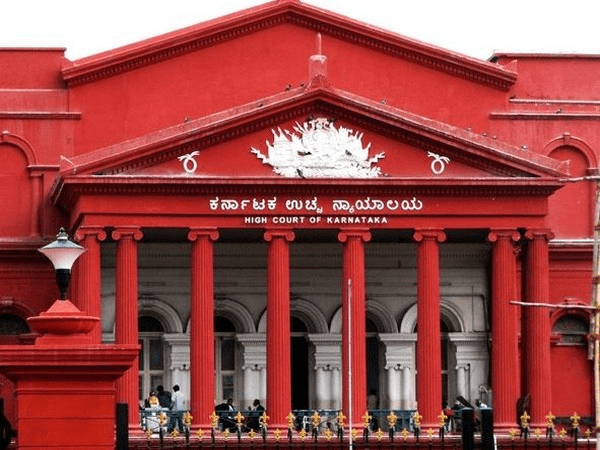The Karnataka High Court directed the respondent authorities to ensure that the loudspeakers, public address systems, sound producing instruments and other musical instruments shall not be permitted to be used above permissible decibel from 10 pm to 6 am.
The Division Bench of Acting Chief Justice Alok Aradhe and Justice S. Vishwajith Shetty disposed of a Petition filed by one Chandrashekhar R seeking the
following reliefs:
“(i) Issue a Writ in the nature of Mandamus or any other Writ or Order, Directing the Respondent No.1 to 4 to stop the mosques or masjids in the State of Karnataka for using the objectionable words through loudspeakers while calling Azan or Adhan prayer 5 times in a day throughout the 365 days in a year.
(ii) Issue a Writ in the nature of Mandamus or any other writ directing to take step in order to seizure and confiscation of loudspeakers, amplifiers and such other equipment’s installed in mosques/ masjids for using the objectionable words while calling Azan or Adhan prayer in the State of Karnataka.”
According to the petitioner, Azan or Adhan prayers are being offered through loudspeakers and public address systems five times a day between 6 a.m to 10 p.m throughout the year from the mosques or masjids in the State of Karnataka.
The grievance of the petitioner is that calling of Azan or Adhan, though is an essential religious practice of Muslims, however, the contents of the Azan or Adhan are hurting the believers of other religious faiths.
Manjunath S. Halawar, the counsel for the petitioner, submitted that the contents of the Azan or Adhan hurts the sentiments of believers of other faiths and, therefore, a writ of mandamus be issued to respondent authorities to stop the mosques/masjids in the State of Karnataka from using the contents through the loudspeakers or public address systems while calling Azan or Adhan prayers five times a day.
While considering the submission the Court observed that Articles 25 and 26 of the Constitution of India embodies the principle of religious toleration which is a characteristic of Indian Civilization. Article 25(1) of the Constitution of India confers a fundamental right on all persons to freely profess, practice and propagate their own religion. However, the aforesaid right is not an absolute right, but is subject to restrictions on the grounds of public order, morality and health, as well as subject to other provisions in Part III of the Constitution of India.
The Court held that undoubtedly, the petitioner as well as the believers of other faiths have the right to practice their religion. Azan or Adhan is a call to offer prayers. However, the contention that the contents of Azan or Adhan violate the fundamental right guaranteed to the petitioner as well as the persons of other faith cannot be accepted.
The Court noted that it is not the case of the petitioner himself that his fundamental right guaranteed under Article 25 of the Constitution of India is being infringed in any manner by calling of Azan or Adhan through loudspeakers or public address systems.
However, before parting with the case, the Bench mentioned that the aforesaid right to practice religion is not an absolute right but is subject to restrictions on the grounds of public order, morality and health, as well as other rights guaranteed in Part III of the Constitution.
Therefore the High Court while observing that the use of loudspeakers, public address systems and sound producing instruments is governed by the Noise Pollution (Regulation and Control) Rules, 2000 read with Section 37 of the Karnataka Police Act, 1963 directed to ensure that the loudspeakers, public address systems, sound producing instruments and other musical instruments shall not be permitted to be used above permissible decibel during night from 10 p.m to 6 a.m.
A Division Bench of the High Court by order dated 17.06.2022 passed in Writ Petition No.4574/2021 has directed respondents to carry out a drive to prevent the misuse of loudspeakers and public address systems.
The respondents shall follow the directions issued by the High Court by an order dated 17.06.2022 passed in Writ Petition No.4574/2021 and shall file a compliance report before the High Court within a period of eight weeks, the Bench further directed.


